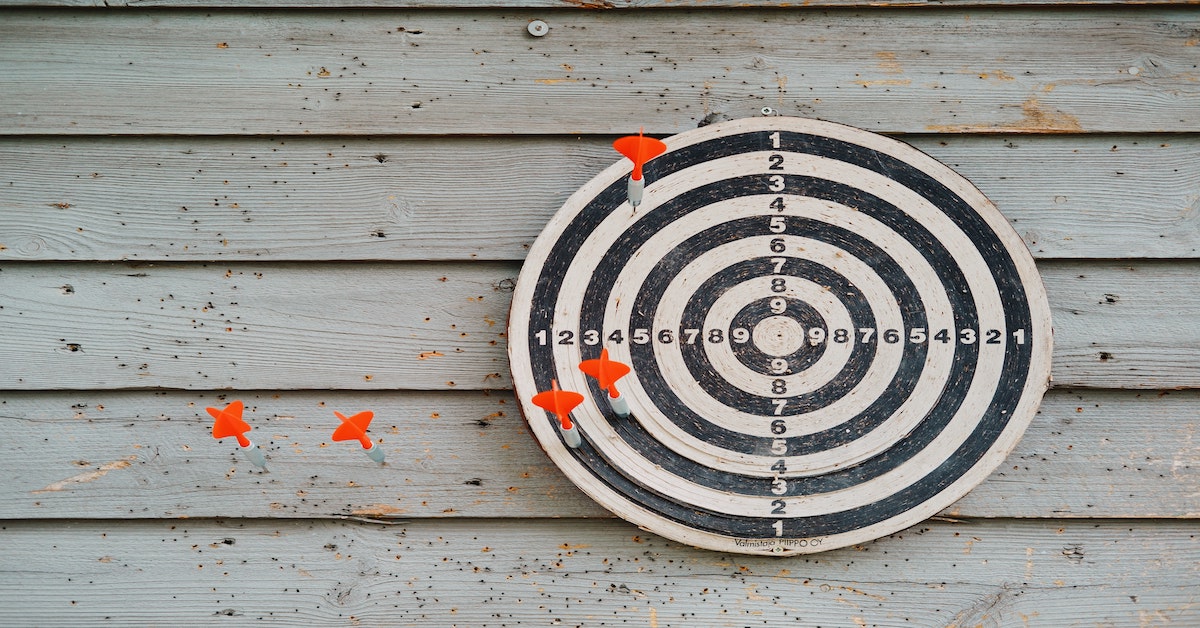Goals are often discussed for various reasons and purposes. However, did you ever wonder about could setting goals potentially be harmful?
You may have recently set up a goal to work towards and ultimately aim to achieve. We often discuss creating goals and intentionally setting up goals for ourselves in hopes of helping us make progress for what we want to do. While goals are developed with positive and beneficial intent, they can be controversial. Possibly, you may have a question come to your mind about could setting goals potentially be harmful. Also, goals can be quite subjective and leveraged for diverse situations.
It is essential to know different perspectives and sides of what goal setting could provide and the effect it might have on you or your situation. For instance, could setting goals potentially be harmful or help you move forward with what you want to accomplish? Sometimes, you may find goals you created for yourself weighing you down, but other times, they motivate you. These can apply to various situations, whether it might be for short-term or long-term and small or big goals.
What Are Considered As Goals?

As we are discussing, could setting goals potentially be harmful? One of the big questions to ask would be what you might actually consider goals. Often, there are assumptions that everyone already knows about goals and probably has set up goals in the past and more coming in the future. Sometimes, when you become overly familiar with topics and concepts such as goals, you tend to change the meaning and even misuse them. So, it may not be surprising that there are more goals created than the ones achieved and ones unachieved, creating frustrations.
Generally, there are varying meanings of goals, but often, goals are known to be what you want as a result. These can be pretty broad, and it could mean your idea of the future, plans, and what you want to achieve and not only limited to yours alone but for groups or organisations. Goals may be short or long-term and consist of multiple small goals or even a single goal.
They could be pretty subjective and be practically applied to various circumstances. Importantly, goals should be achievable and realistic. For instance, it would be highly unrealistic to wake up tomorrow on the moon unless you were actually on a trip to the moon. Fundamentally, goals should be helping you in some way to achieve what you want, whether by supporting you to focus better or feel more motivated.
How Do Goals Work?
To simply state, goals are usually used to provide helpful and beneficial support for you to achieve what you want. For instance, this can take many forms, such as a boost in motivation, giving you direction and concentrating your focus on working towards the goal. Generally, goals can be pretty broad and used in almost all situations. However, you could say there are some differences between better and poor goals. After all, you probably made goals in the past, but if you consider how many of them you achieved, the answers usually vary.
Often, more goals are being made compared to ones being achieved, and some of these reasons could be about how goals were designed. Try considering goals you could not reach, were they unrealistic and possibly had no time frame. Sometimes, goals that may be extremely difficult to achieve or impossible are created, making it highly difficult for these goals to help you.
Furthermore, creating challenging or poor goals may cause you to self-sabotage and be unable to get the beneficial effect of goals, like helping you use your time better. Therefore, if you feel that your goals are poorly designed, take a moment to find out why goals would be considered poor and revise them. You may notice the goal you made are not achievable or realistic and could benefit from adding a time frame such as finishing reading the book in a month.
How Could Setting Goals Potentially Be Harmful?

You may have started to wonder how some ways setting goals could potentially be harmful. Although, the discussions around goals are pretty controversial and even subjective. For some of the reasons, you could feel like you can relate to and have experienced these, especially when you could not achieve the goals. Depending on situations and how goals were made or contained, you may feel some of these potentially harmful effects and negative experiences:
• Losing Sight Outside Of The Goal
Often when goals are set up, it can be pretty easy to lose sight of things outside your aim, and this could lead to various situations, including harmful ones. For instance, if you become too busy and focused on achieving the goal, you could lose the bigger picture of why you made the goal in the first place. It can be good that you want to achieve the goal. However, if you become overly focused and lose sight of your goal, you could lose meaning and burn out faster during the journey.
• Temptation To Take Risks For The Goal
Suppose you make a goal that is difficult or near impossible to achieve. When you become really invested and want it, you could become tempted to take risks to accomplish it. The stakes could depend on the situation, but this potentially harms you. Hence, the goal itself may need to be modified. Sometimes, when you really want a thing, and you hear about something that may help you, there can be a tendency to try it and even lead to regretful consequences.
So, it could be best to consult with someone or reconsider what you are trying to do, especially in desperate and challenging times when you are often most vulnerable. You know the saying, at times, when you hear or receive an offer that sounds too good to be true. It would probably be best to take the time to think about it carefully.
• Pressure To Accomplish Your Goal

Another potentially harmful effect of setting goals could be that you get a lot of pressure to accomplish your goal. For instance, imagine if you made the goal to write a book from scratch within a week. That goal would be pretty challenging and even unreasonable, considering writing a book can be difficult and time-consuming with usually various processes involved. The amount of pressure you get from the goal should be reasonably balanced, although sometimes you can be more motivated with a bit of challenge.
Setting goals should generally help you to achieve something you want, not make you in a position of almost being obsessed about accomplishing the goal to live for it only. After all, when you live around your goal, although it may depend on what your aim is, you would start to lose balance and affect your well-being negatively. A few examples might be that you begin drifting away from social life and a healthy lifestyle due to being pressured for time and wanting to accomplish your goal.
• Feeling Of Failure From Not Achieving The Goal
Sometimes, goals that are set don’t have a time specification, although most of the time, it could be better to have one or other times, long term. While it is not limited to only goals with no clear time frame or long term, it can bring out a feeling of failure. If you think about it, you are failing until you achieve the goal, and as you continue, particularly for longer ones, you could build up the feeling of failure.
For instance, if you were to say you will buy a house in 6 months. It would mean you are in a state of failure until you get the house. Although, failure from not achieving the goal can depend on the circumstance and be subjective. One simple way to reduce this potentially harmful side of setting goals may be to create stepping steps or smaller goals between the end. These could be simple as things like adding $100 every Friday to the savings for buying the house.
Potential Alternatives To Setting Goals
If you wondered about any possible alternatives, as you asked yourself, could setting goals potentially be harmful? You may want to try a few ideas that slightly differ from the goals. After all, it can be good to find what works for you and explore better or alternative options, especially if something doesn’t work.
Also, when you take different approaches, whether it may be setting goals or other options, you could benefit from being open-minded towards them. If you don’t look at things more openly and try to find flaws, you will likely find and see flaws quicker since almost everything usually has pros and cons. Often, goals designed poorly are the ones that could cause more harm than better-designed goals with clearer vision.
• Creating A System

One of the potential alternatives to setting goals is creating a system. This means you identify your needs and what you want to do. For instance, if you were to look at it from a goal perspective, you could say you want to lose 5 kilograms in 2 months. On the other hand, from the system perspective, you could be saying that you are going to go for a 30-minute run every day. Going for the 30-minute run daily would likely contribute to losing 5 kilograms. However, you are not setting goals and doing things that help you achieve what you want.
Generally, creating a system would help you get the feeling of success frequently instead of achieving a goal like buying a house which may take time. Also, you can make systems to suit your numerous needs as long as you manage the time and do it accordingly. Creating a system can be quite similar to goals and be broad while allowing you to design for what you want.
• Forming Small Wins
Similarly to short-term or stepping-stone goals, you can aim to get small wins to get to your aim and vision as another potential alternative. You could often feel pressured and even lose motivation when facing complex and large problems or challenges. Therefore, you can reduce that overwhelmingness by reforming the large problems into smaller and more manageable challenges. Doing so would allow you to see visible results and lessen the stress or pressure of facing a complex challenge head-on.
Recasting large problems or vision into more minor challenges, which you can do and get the small wins, doesn’t mean you are trying to avoid it. Instead, you are still tackling the major challenges but making them more achievable and allowing you to go at a steady pace. Doing so is likely not to compromise your well-being to a great extent. Furthermore, you can break down numerous things into small wins not limited to only large vision or complex problems. Also, getting small wins may motivate you to push forward rather than potentially feeling failure until you achieve your goals.
When you ask yourself could setting goals potentially be harmful, think about what triggered you to wonder about that question. Perhaps, you recently had a bad experience with goals, or you have been unable to achieve goals that you set. Often, the idea of setting goals is not the one potentially causing harm, but how goals were designed is likely the one. Specifically, when you create poor goals that are unclear, possibly due to things such as that the goal might be unrealistic and has no time frame.
Trying to achieve poorly designed goals can be extremely difficult or even impossible and even lead you to feel the potentially harmful effects of not accomplishing the goal. Therefore, it can be crucial to set goals to make them realistic and ask yourself if they should have a time frame. Also, reflect broadly on what creating this goal would do for you and if there are other factors, you may need to consider. Furthermore, you may want to consider if creating small stepping stone goals or incorporating a small wins strategy would benefit and be helpful for you.

